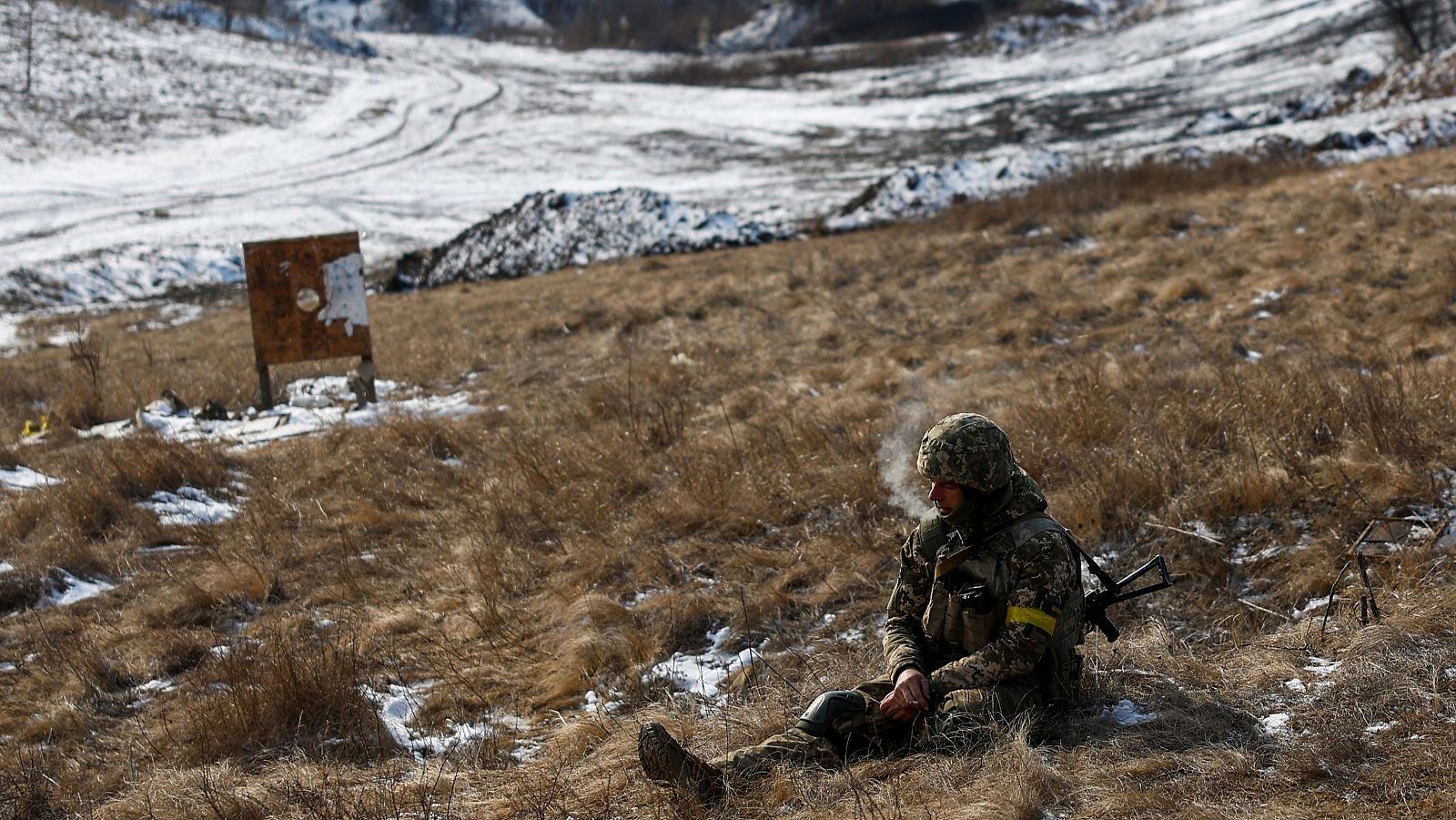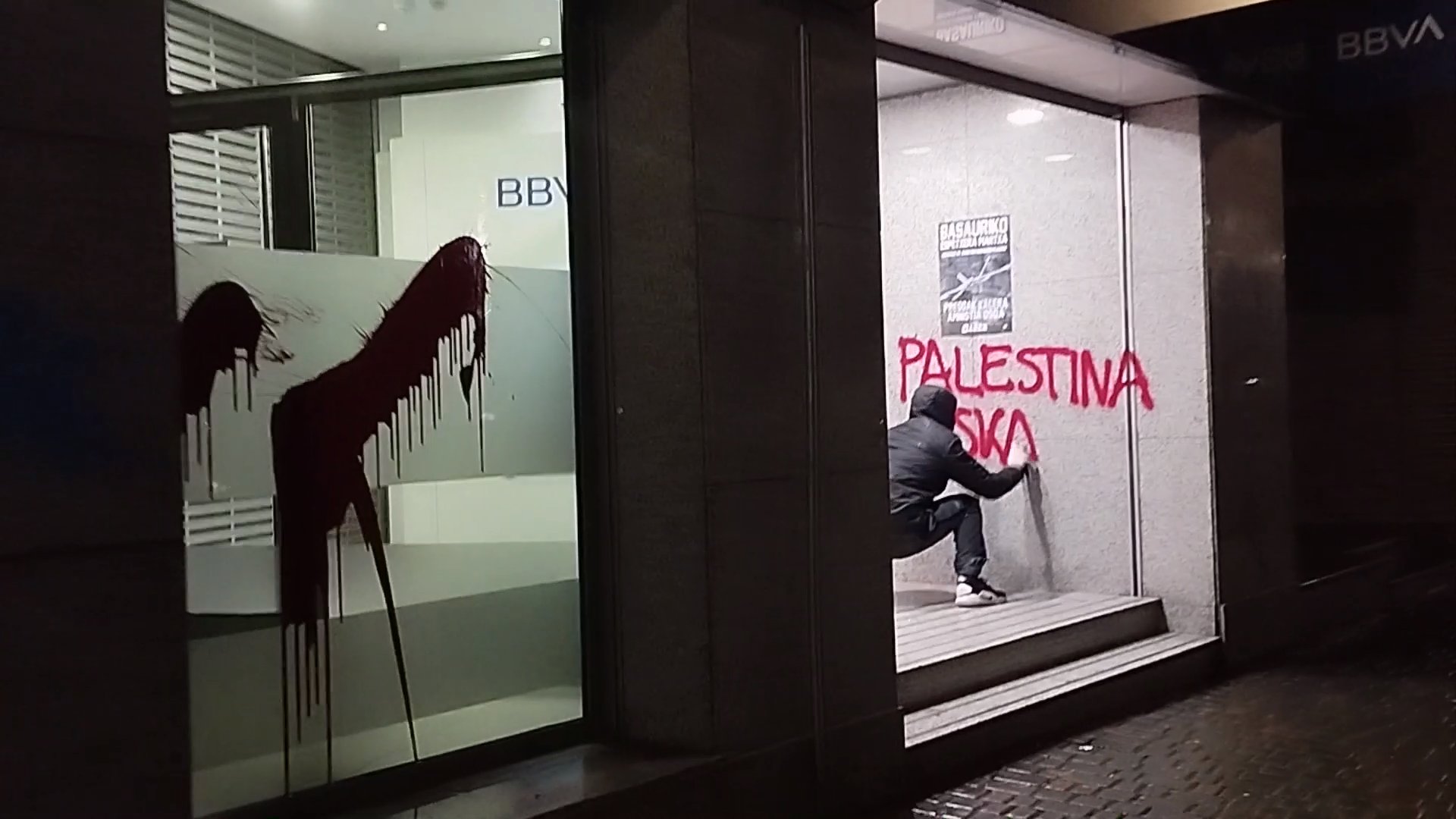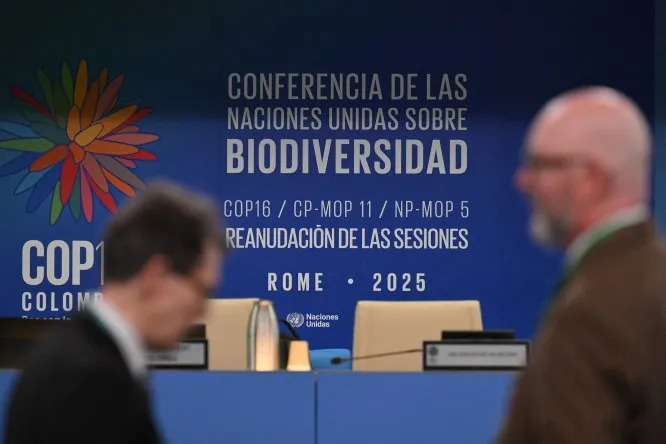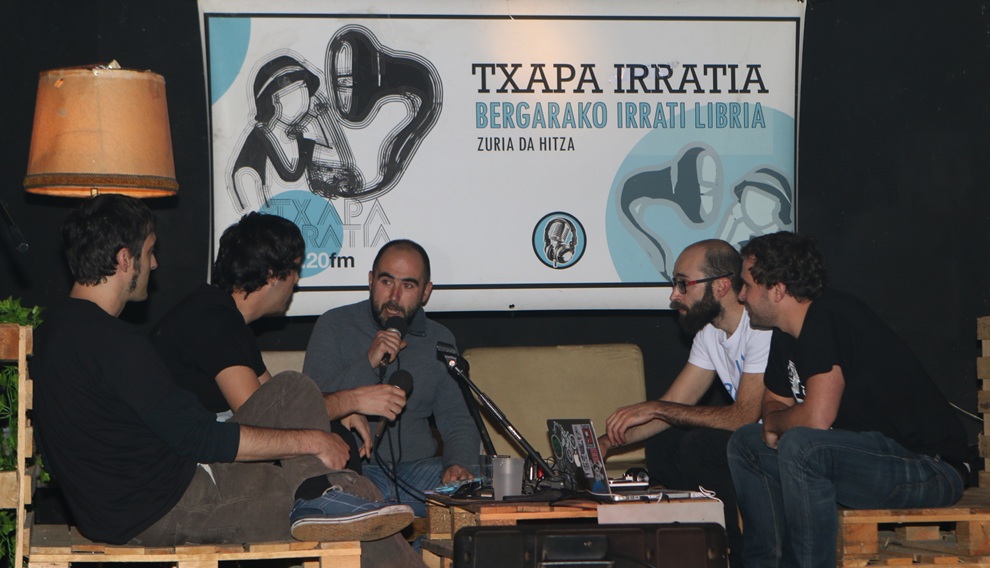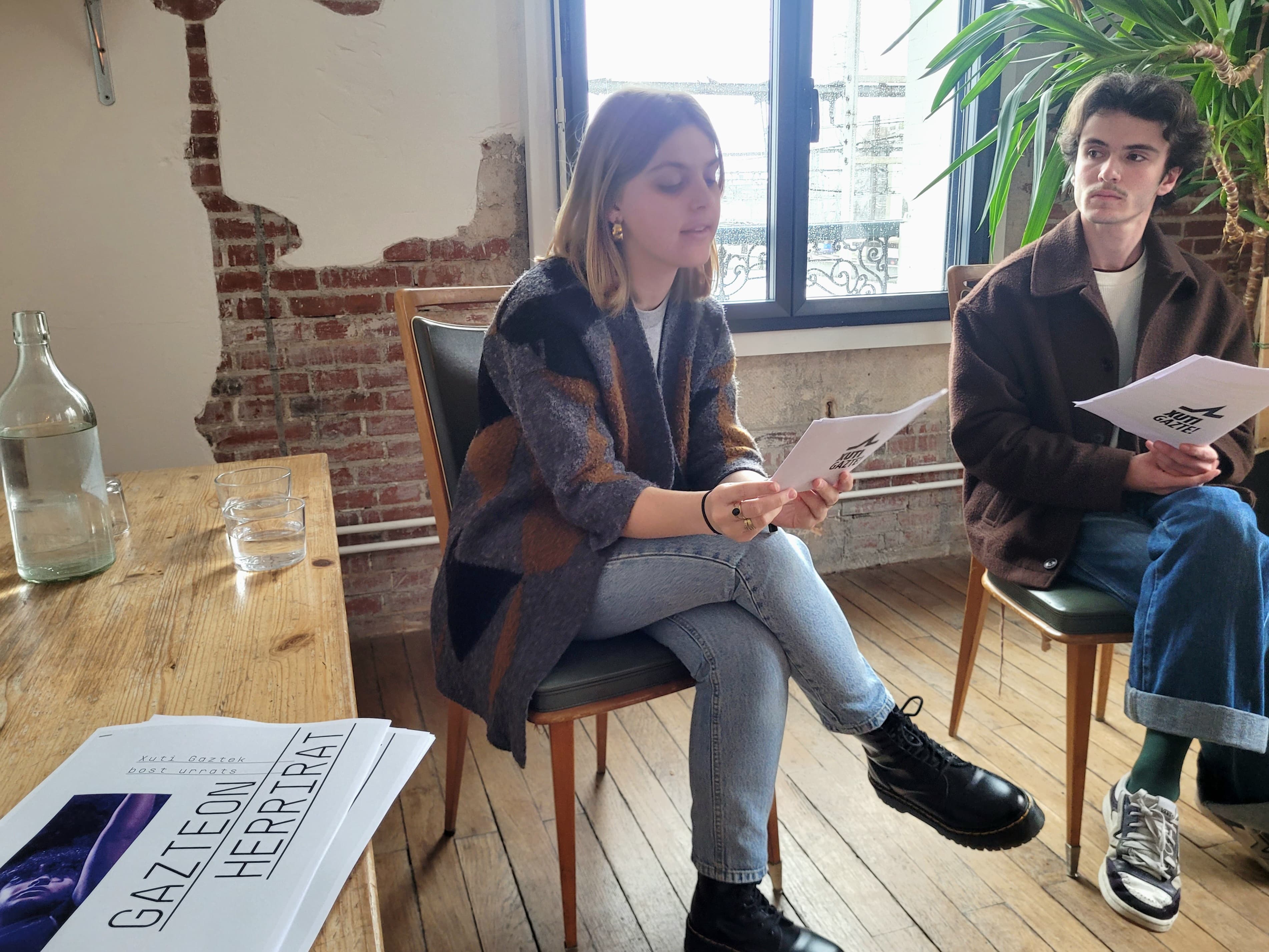Theatre lovers on the move
- The Basque Country Theatre Association was announced in June. The EHAZE reminds us that the discomfort of Basque theatre comes from a long time ago, with its birth, in times when it has been splattered by cultural crises. For the moment, he is joining forces, taking steps, making himself known to the fans, which is basically the mission of the association: to give voice and tools to work to everyone who is a fan.
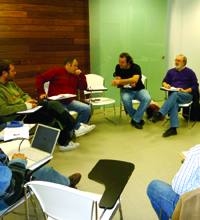
Idoia Gereñu works as a coordinator and, in her opinion, the substantive work is still pending. “We met the goal of last year’s course, to make the partnership public and get it going. We can equate this year with the first year of a newborn child, now he has to grow up to take the first steps.” As in the theatre, the movement does not emerge from scratch, improvisation is always about something, the body has asked the EHAZE to reflect on the situation that the Basque theatre is experiencing.
How is the Basque theatre?
The seed of the EHAZE was planted three years ago, when people from different areas of the theatre met in the context of the Hik Start meetings. According to Camara, this was a diverse group: teaching people, professional actors, amateurs... “In this meeting everyone was worried, pessimistic, because they saw problems in the Basque theater”. Among the most serious problems was precisely the dispersion of all. “Everyone tried to solve their own micro-universe without a unified response to the general problem.” After that meeting, they began to take steps, making contacts and networks, until June of this year. From the beginning it has been clear that it must be a project structured around the amateur, according to Camara, the ability or desire to do something for the Basque theater is something that must be measured. “Being a fan association, we want to emphasize that it does not have the vocation of being a professional association. Since the relationships that are usually made at the professional level are quite commercial, we are far from the spectator.” The association wants to break this dynamic: “In the programming scheme we have here, the viewer is a passive agent, a mere consumer. What we would like to achieve through EHAZE is that it is an active agent, that it also has the ability to ask what it wants.” Considering the
concept of the amateur, it seems inevitable to mention the impact of the success of the verse. Camara said that she was very present at the beginning, but less lately. “Bertsolarismo is very local, a cultural area that has been awakened with great strength. It becomes a reference to how many people, how many fans move around it. We have a very good relationship with the Bertsozale Association, there are probably ideas that can be taken from their experience, but we see that we have been created to face another problem: at the moment, for example, there is no bertsolaris to give birth”. Although there are more cultural infrastructures in the Basque Country than ever before,
they are largely emptied of Basque. According to Camara, it’s an issue that has been around for a long time: “The problem we feel is that the theater is, in fact, quite central. With the exception of the phenomena that survive in the North, most of the manifestations that have been created for adults since the 1960s have been created in Erda. When later programming has been consolidated, both in the North and in the South, it has been complemented by shows coming from abroad and especially in Spanish or French. Theater is 18% of programming. This includes children’s theatre, which accounts for 80% of all Basque. And that 80 is not going up; cases are emerging that also require programming in Spanish for children.” The diagnosis of
Basque theatre is one of the first purposes of the EHAZE. “We are collecting data to analyse how the Basque theatre is doing. How many groups there are working in Basque, how many plays there are to offer, who are amateurs, professionals; for both adults and children... Sometimes we have heard that there is a willingness to program but not enough work to maintain a program. Is that ignorance? Or laziness, because they haven't made much effort to look for it? “There are jobs, there are jobs.”
Developing the Textualization
With the aim of spreading the hobby, EHAZE also has numerous projects to fill in the gaps that the people who work in the theatre industry have felt. Among the work groups that have been created is the one that deals with documentation, since one of the most important objectives is the social integration of the legacy generated by the theater in Basque. Pablo Barrio is in this work group. “It is a long-term initiative to be carried out in collaboration with agents of the other type, which should be carried out in a Documentation Center of this type.” There are many fields of work that have been planned for this purpose: collect the history of theatre in Basque and research on it; collect texts that have already been created and encourage the creation of new texts; collect essays and theoretical research, pedagogical materials, practical guides, etc.; obtain works related to technical areas or staging, such as dramaturgy, scenography, etc.; collect
audiovisual archives. According to Barrio, the most urgent thing among them is to satisfy the lack of text: “If a group wants to prepare something, the first concern is the text. Nothing is published, I would say less and less. On the other hand, there are many texts there: those that are written, presented to a contest and stored in the drawer, or those that are represented by some group and then lost in oblivion, for example. Collecting them, combing them, classifying them and making them available to everyone is the first task we have imposed on ourselves.” They will launch the website with texts, with a tab that summarizes its characteristics. “It’s a lot of work that needs to be done in
the field.” The feelings that arise around the textualization could also be representative of the general situation. Barrio has reflected extensively on the subject: “There are a lot of problems with the Basque theatre and the text is not the smallest of them. It is true that the text is only a complement to a process, often not the most important, and in this sense it should not be overdramatized, but at the same time it is true that without the text there is no healthy theatrical production in Basque.” The problem of theatrical texts could be understood in the context of literature or even culture. “It has been said that theatre, in the form of literary genres, is on its way to extinction. In our case, if one’s taste is not there is little reason to create theatrical texts and no economic reason. In this way, something of quality will emerge at some point, but if we want healthy theatre, quality will have to emerge from quantity. But it doesn’t seem to matter to anyone, not even to people in the theater world, unfortunately.” To the extent that
Barrio believes that the EHAZE can be a meeting point for people working in the different areas of the theater, it could channel mutual knowledge between textualists and groups. “The real challenge and contribution of the Theatre Association is to bring together all the sectors that move around the theatre. If we really succeed in bringing the EHAZE to life, the association itself will naturally become a meeting point, it will open the doors to mutual knowledge, it will bring those who were far away closer together.”
Joan den asteartean La Vanguardia-n argitaratutako artikuluan egin zuen proposamena Txema Montero abokatu bizkaitarrak. 30 urtez Deia egunkariko kolaboratzailea izan da eta lehenik hara bidali zuen bere artikulua, baina egunkariak ez zion argitaratu.
Hemendik aurrera egunkarian soilik "norbanakoen askatasuna eta merkatu librea" sustatzen dituzten iritziak jasoko direla adierazi du enpresaburuak. Iritzi artikuluen zuzendariak hedabidea utzi duela ere argitaratu du.
Urteak iragan dira bere azken argazkia ikusi zenetik. 26 urte daramatza preso Abdullah Öçalanek Turkiako Imrali uhartean isolatuta, "erakunde terroristako" buruzagitza egotzita. Ostegun eguerdian bere argazki berri bat zabaltzeko baimena eman du Turkiako... [+]
Elkarteak ekainaren 27, 28 eta 29an Arberatzen (Nafarroa Beherea) izango den jaialdian izateko aurresalmenta abiatu du ostegunean. Hiru eguneko sarrerak 43 euro balioko ditu eta Ipar Euskal Herriko "lau ertzetatik" festibalera hurbiltzeko autobusak antolatuko dituztela... [+]
AEBek Ukrainako gerraren aurrean egindako jarrera aldaketaren barruan, “lur arraroak” deiturikoak negoziaziorako gai nagusi bilakatu dira Volodymyr Zelenskyren eta Donald Trumpen artean. Lehenak nahi du AEBek bere segurtasuna bermatu dezatela Errusiaren aurrean,... [+]
Asteburua baino lehen lau gatiburen gorpuak itzuliko ditu Hamasek. Horrela, Gazarako su-etenaren lehen faserako adostutako preso truke guztiak gauzatuko dituzte Israelek eta talde palestinarrak.
Lestelle-Betharramgo (Biarno) ikastetxe katolikoko indarkeria eta bortxaketa kasuen salaketek beste ikastetxe katoliko batzuen gainean jarri du fokua. Ipar Euskal Herriari dagokionez, Uztaritzeko San Frantses Xabier kolegioan pairaturiko indarkeria kasuak azaleratu dira... [+]
31 urteko emakume kolonbiarra osasun zentrora eraman ordez ertzain etxera eramatean agenteek "akatsa" egin zutela aitortu du Segurtasun sailburuak, baina azpimarratu du ez zuela "jipoirik" jaso.
Jarritako kondenak barkatzearen truke, armadara batu da preso andana. Azken urtean, errekrutatze-legeak gogortu ditu gobernuak.
Arma nuklearren produkzioarekin, mantentze lanekin eta modernizazioarekin loturak dituzten hainbat enpresa aztertu dituzte, eta horien artean agertzen dira BBVA, Santander bankua eta SEPI.
Iazko urriko bileran lortu ez zuten akordioa erdiestea espero dute COP16ko parte-hartzaileek, eta ostegun honetan dute gailurraren azken eguna. 2030. urtea bitartean, bioaniztasunaren alde 200.000 milioi dolar bideratzeko engaiamendua hartu zuten 2022ko COP15 gailurrean, eta... [+]
570.000 familiak euren haurren ikasgeletako hizkuntza nagusia zein izango den bozkatzeko aukera dute martxoaren 4ra arte: gaztelera edo katalana. Garikoitz Knörr filologoaren eta euskara irakaslearen arabera, kontsultak "ezbaian" jartzen du katalanaren... [+]
Egitarau mardula prestatu dute Bergarako irrati libreko kideek: musika, literatura eta tailerrak. Besteren artean, martxoaren 29an Txapa Eguna egingo dute.
"Ipar Euskal Herria gaztez odolusten ari da". Sail berriak sortu goi-mailako ikasketetan, etxebizitza sozialak egin gazteentzat edo aisialdia euskaraz bermatu… Hamabost proposamen konkretu egin ditu Xuti Gazte ezker abertzaleko gazte antolakundeak.
Uribe Kosta BHI institutuko hainbat ikaslek salatu duenez, mezu "iraingarriak, matxistak eta homofoboak" jaso dituzte Batxilergoko beste ikaskide batzuengandik. Horrez gain, gaineratu dute mezuak irakasle bati ere bidali dizkiotela eta beste ikasle batzuen... [+]









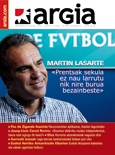

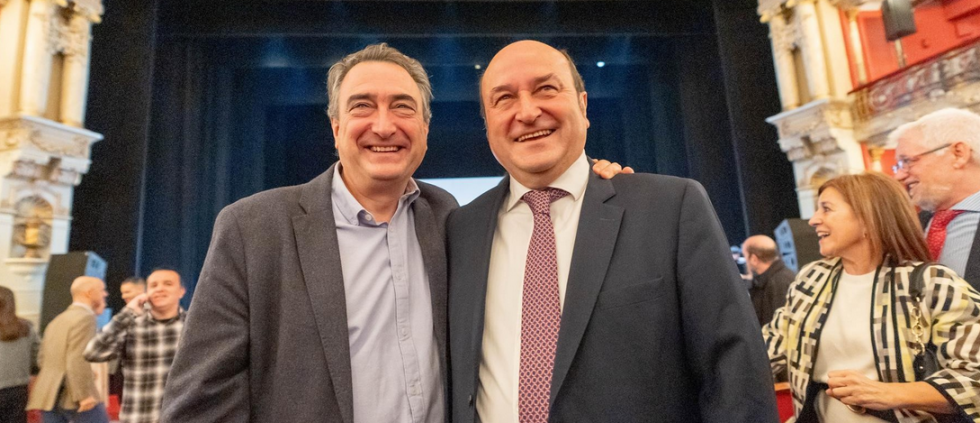

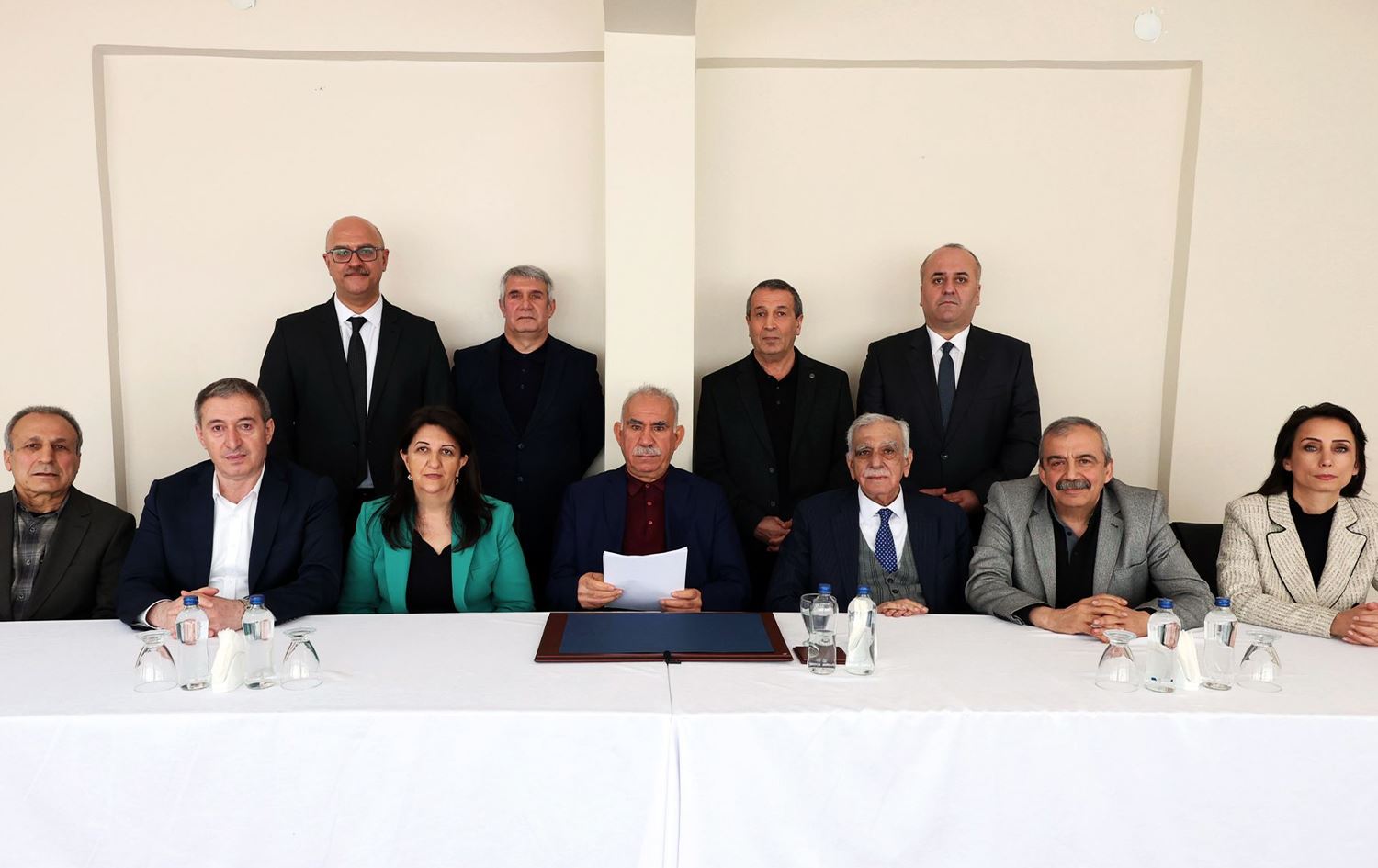
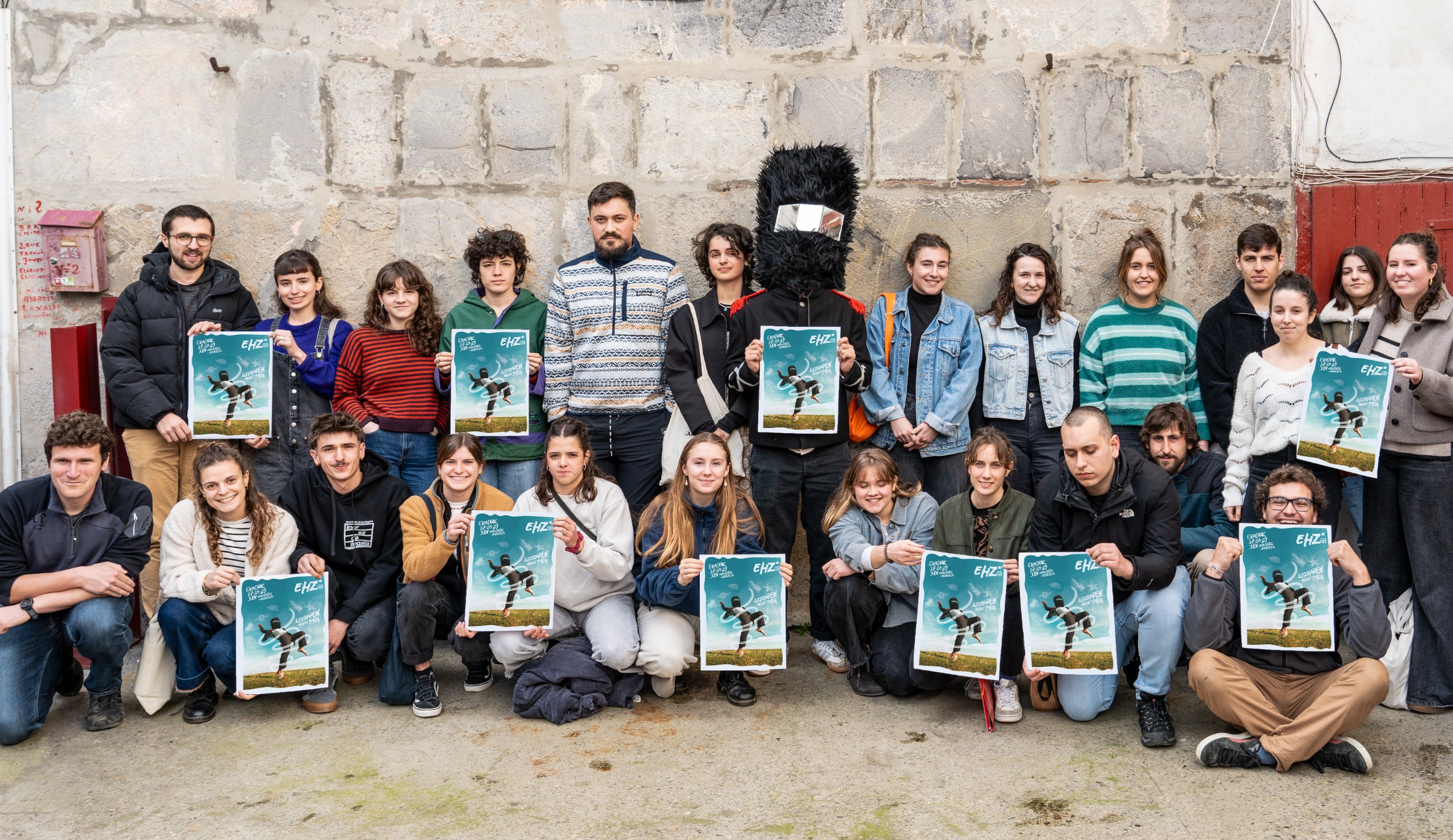


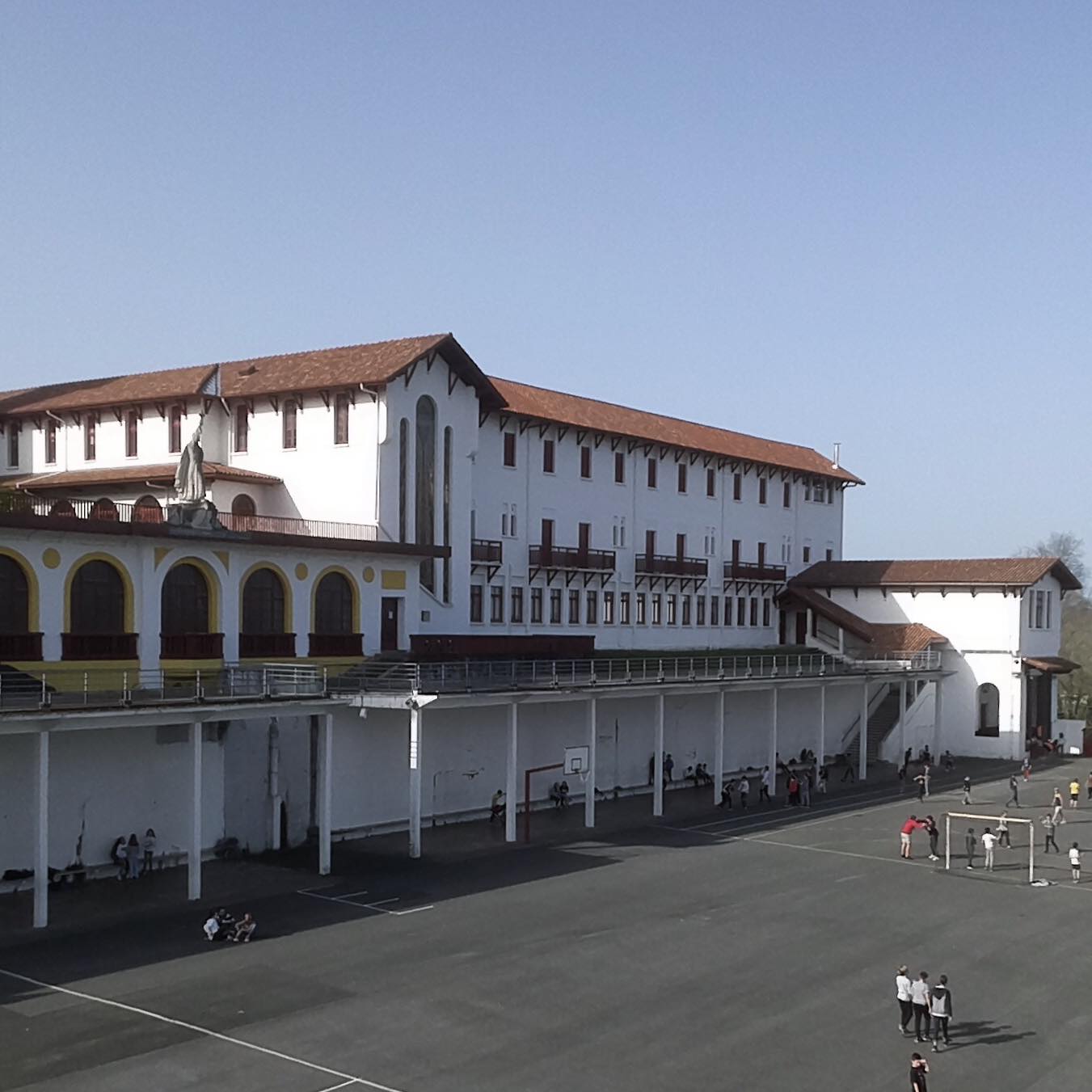
.jpg)
